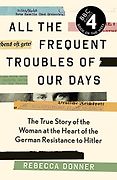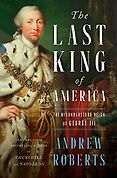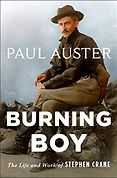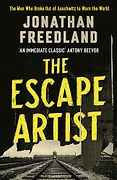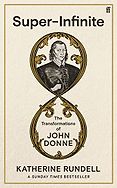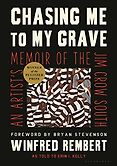Biographies have come a long way from the days when they focused mainly on well-known political or artistic figures. Often, today’s most compelling biographies are about people we may have never have heard of, but whose life stories are so extraordinary they leave us humbled at what other human beings have been able to endure and achieve. Some of those biographies won prestigious prizes this year:
The National Book Critics Circle award for biography and the PEN/Jacqueline Bograd Weld Award for Biography
Of the prizes dedicated to biographies, it was a biography of Mildred Harnack that won both the National Book Critics Circle award for biography in 2022 as well as the Jacqueline Bograd Weld award, awarded by PEN America. All the Frequent Troubles of Our Days: The True Story of the Woman at the Heart of the German Resistance to Hitler is the powerful story of an American woman who fell in love with a German student at graduate school at UW–Madison and ended up marrying him and moving to Berlin just as Adolf Hitler was rising to power. Not only is it the life story of an extraordinary person, it’s also a fascinating picture of Berlin in the 1930s (“the very first traffic light in Europe appeared here”). Needless to say, the story ends badly and Harnack was executed after Hitler’s personal intervention, in 1943. The biography is written by Canadian writer Rebecca Donner, Harnack’s great-great-niece.
The Elizabeth Longford Prize for Historical Biography
The Elizabeth Longford Prize is an award set up in 20o3 in memory of Elizabeth Longford (1906-2002), a British biographer who wrote biographies of both Queen Victoria and the Duke of Wellington. This year’s prize went to a book about George III: The Last King of America by the British biographer Andrew Roberts. Roberts, who previously wrote an acclaimed biography of Napoleon as well as an excellent one-volume biography of Winston Churchill, tries to restore the reputation of a man who was blamed in England for losing the American colonies and reviled in America for being a tyrant. In Roberts’s telling, George III suffered from bipolar disorder and many of the criticisms of him were just crude distortions by his opponents.
The LA Times book prize for biography
The LA Times awards a number of book prizes every year. This year’s prize for biography went to a literary biography, American novelist Paul Auster’s Burning Boy, about the life and work of Stephen Crane. Crane is best known as the author of one of the most famous historical novels about the American Civil War: The Red Badge of Courage, though he wrote prolifically throughout his short life, including a stint as a war correspondent in Cuba, covering the Spanish-American War. Crane died in 1900 aged just 28. Auster writes, “I come at it not as a specialist or a scholar but as an old writer in awe of a young writer’s genius. Having spent the past two years poring over every one of Crane’s work…I find myself just as fascinated by Crane’s frantic, contradictory life as by the work he left us.”
Biographies Shortlisted for the Baillie Gifford Prize for Non-Fiction
In addition to prizes dedicated to the genre, biographies also loomed large on the shortlist of the UK’s most prestigious nonfiction prize, the Baillie Gifford Prize. A particularly gripping read is The Escape Artist by British journalist Jonathan Freedland, who also writes thrillers under the name Sam Bourne. It’s the story of a Slovakian Jewish teenager, Rudolf Vrba, who along with fellow Slovakian Fred Wetzler managed to escape from Auschwitz in April 1944. They were the first Jews to do so and were able to report what was going on there to the outside world. The book opens with their escape by hiding in a pit under a woodpile and taking advantage of their knowledge of SS protocols to get away. Vrba, who was born Walter Rosenberg, subsequently made his life in the US.
The overall winner of the Baillie Gifford was another literary biography, about the British poet John Donne (1572-1631). It’s called Super-Infinite by Katherine Rundell. Rundell is a children’s author who also specializes in Renaissance literature and makes the case that Donne should be as widely feted as William Shakespeare, his contemporary. She writes, “Donne is the greatest writer of desire in the English language. He wrote about sex in a way that nobody ever has, before or since: he wrote sex as the great insistence on life, the salute, the bodily semaphore for the human living infinite. The word most used across his poetry, part from ‘and’ and ‘the’, is ‘love’.” As she notes: “This is both a biography of Donne and an act of evangelism.”
The Pulitzer Prize for Biography
The 2022 Pulitzer Prize for Biography (which also includes works of autobiography) went to Chasing Me to My Grave: An Artist’s Memoir of the Jim Crow South by the late Winfred Rembert (1945-2021). Rembert was from a family of field labourers in Cuthbert, Georgia and taught himself to paint at the age of 51 using leather tooling skills he learned in prison. In the preface, he writes that he had been scared to draw attention to what happened to him in Cuthbert during his lifetime, and so he only composed his memoir as he was dying. It’s a wrenching tale told in a very direct and touching way. The book also includes pictures of his paintings—of cotton fields, of his mother giving him away as a baby.
December 17, 2022. Updated: October 17, 2025
Five Books aims to keep its book recommendations and interviews up to date. If you are the interviewee and would like to update your choice of books (or even just what you say about them) please email us at [email protected]
Five Books interviews are expensive to produce. If you've enjoyed this interview, please support us by donating a small amount.


